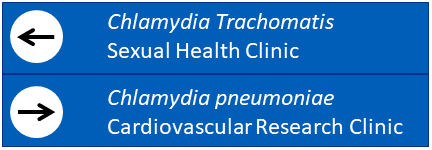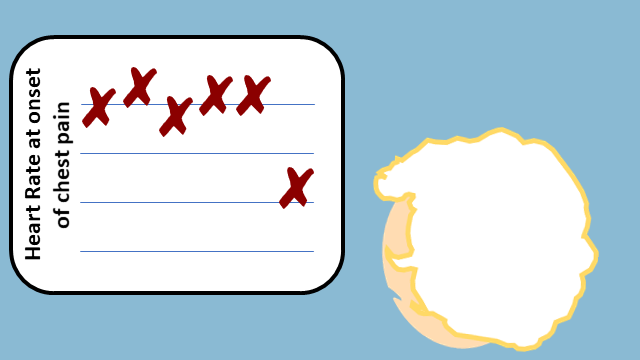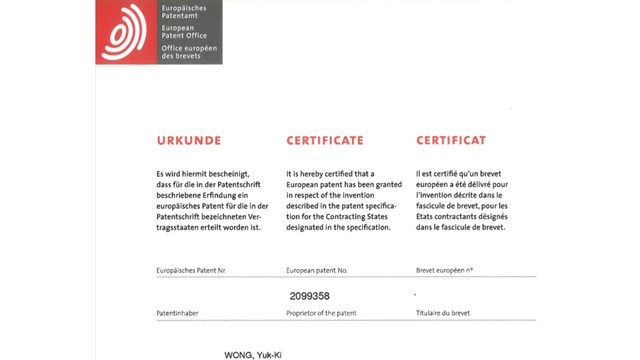Dr Yuk-ki Wong
BSc(Hons), MB ChB, MD, FRCP

Dr Yuk-ki Wong trained at Manchester University. He graduated with a Degree in Physiology in 1987 and a Medical Degree in 1990. After junior posts in the North West and obtaining MRCP, he started cardiology training in Wessex in 1993. He was awarded his certificate of completion of specialist training (CSST) in 2002 and was elected FRCP in 2008.
Since 2003, he has been a Consultant at the Western Sussex Hospitals NHS Foundation Trust and is based at St. Richard’s Hospital, Chichester. He is a general cardiologist and the clinical lead for Heart Failure. He treats a wide range of conditions including coronary disease, arrhythmias, atrial fibrillation, valve disease and hypertension. His routine work includes cardiac catheterisation, implantation of permanent pacemakers and echocardiography. He helped develop the local CT coronary angiography service and is the lead for cardiology research.
Teaching

Yuk-ki Wong is a Honorary Senior Lecturer at Kings College Medical School and was previously a Sub Dean. He also teaches medical students from Brighton and Southampton Medical Schools and is a clinical and educational supervisor for junior doctors.
Research
MD Degree. 1999

In the 1990s, it was thought that coronary disease could be caused by a bacteria known as Chlamydia. This caused great excitement because it meant that coronary disease could potentially be eradicated by antibiotics. Yuk-ki Wong invesigated this theory for an MD degree. Supervised by Professor Mike Ward of the Department of Molecular Microbiology, University of Southampton, they worked on projects funded by the Briitish Heart Foundation and Wessex Heartbeat Charity. There was also collaborative work with Oxford University, the MRC Environmental Epidemiology Unit, Southampton and the Biobanque De Picardie. Important papers were published but overall, it does not look as if Chlamydia is a cause of coronary disease.
The ALARM study. Predicting when heart attacks will occur.

It is often thought that heart attacks occur without warning. As death can occur shortly afterwards, there has been a tremendous amount of research and service re-organisation in order to treat patients within the first “Golden Hour”. If treatment could be started before the heart attack occurs, even more lives could be saved. In fact, about 50% of patients have warning symptoms during the 2 weeks leading up to a heart attack. They get angina that occurs at less exertion. Since exertion can be measured by heart rate, then angina occurring at low heart rate could be a warning signal for a heart attack. The NIHR awarded Yuk-ki Wong a £100,000 grant to study his hypothesis. A clinical trial known as ALARM was carried out and published in 2015. The results were promising and ongoing work involves the development of a reliable, portable heart rate monitor.
Large databases

Dr Wong taught himself computer programming and has developed a number of clinical databases. This includes the first database for the Coronary Care Unit of Jersey General Hospital and a Rapid Access Chest Pain Clinic database used in 3 south coast hospitals including Southampton General. He has published research based on large data-sets such as the UK National Census.
Randomised Controlled Trials

To see whether they are effective, new drugs are compared with standard treatment in randomised controlled trials. This means that patients are randomly selected to have either the new or standard treatment. Flipping a coin is randomisation but in clinical trials, more sophisticated methods are used. Usually, clinical trials are also blinded. This means that neither the research team nor the patients know which treatment they have been allocated to. Typically, cardiology drug trials are large and may involve tens of thousands of patients and numerous research staff in many centres. Dr Yuk-ki Wong has been the Principal Investigator for many trials including ILLUMINATE, RIVER, REVEAL, THRIVE, FIDELIO, FIGARO, ODYSSEY, ODYSSEY LONG TERM, CRESCENDO, AVERROES, ARISTOTLE, ATMOSPHERE, CLEAR-HARMONY, COMMANDER, IMPROVE-IT, SIGNIFY, SOLID, STABILITY, EXAMINE, TRANSITION, TRILOGY, IRONMAN, SELECT, ORION-4, STEP, PACIFIC, FINEARTS and OCEANIC. He is the Chief Investigator for ATHENA and POSEIDEN.
The drugs investigated include ranolazine, ivabradine, rivaroxaban, ezetimibe, alirocumab, finerenone, anacetrapib, laropiprant, rimonabant, alogliptin, aliskiren, bempedoic acid, darapladib, torcetrapib, apixaban, intravenous iron, semaglutide, inclisiran and asundexian.
Ongoing trials include ORION-4, ZEUS, HERMES, REDEFINE 3, ATHENA, POSEIDEN, CYCLE1-HFrEF and CYCLE2-HFpEF. ORION-4 is investigating inclisiran in cardiovascular disease. ZEUS is investigating Ziltivekimab in cardiovascular disease whilst HERMES and ATHENA are also investigating Ziltivekimab but in HFpEF. REDEFINE 3 is investigating cagrilintide and semaglutide in cardiovascular disease and obesity and POSEIDEN is investigating the prevalence of systemic inflammation in atherosclerotic cardiovascular disease and heart failure. The CYCLE studies are investigating tovinontrine in heart failure.
Publications

- Effect of correcting iron deficiency on the risk of serious infection in heart failure: Insights from the IRONMAN trial. Foley PW, Kalra PR, Cleland JGF et al. Eur J Heart Fail. 2024 Oct 25. doi: 10.1002/ejhf.3504
- An audit comparing management of patients with HFrEF at a DGH before and during the COVID-19 pandemic. Morey O, Day R, Wong YK. Br J Cardiol 2022;29:109–11. doi:10.5837/bjc.2022.029.
- Angina at Low heart rate And Risk of imminent Myocardial infarction (the ALARM study): a prospective, observational proof-of-concept study. Wong YK, Stearn S, Moore S, Hale B. BMC Cardiovasc Disord. 2015 Nov 14;15:148. doi: 10.1186/s12872-015-0140-z.
- The prevalence of Chlamydia pneumoniae in atherosclerotic and nonatherosclerotic blood vessels of patients attending for redo and first time coronary artery bypass graft surgery. Wong Y, Thomas M, Tsang V, Gallagher PJ, Ward ME. J Am Coll Cardiol. 1999 Jan;33(1):152-6. doi: 10.1016/s0735-1097(98)00547-6.
- Chlamydia pneumoniae and atherosclerosis. Wong YK, Gallagher PJ, Ward ME. Heart. 1999 Mar;81(3):232-8. doi: 10.1136/hrt.81.3.232.
- Chronic infection with Helicobacter pylori, Chlamydia pneumoniae, or cytomegalovirus: population based study of coronary heart disease. Danesh J, Wong Y, Ward M, Muir J. Heart. 1999 Mar;81(3):245-7. doi: 10.1136/hrt.81.3.245.
- Relation between direct detection of Chlamydia pneumoniae DNA in human coronary arteries at postmortem examination and histological severity (Stary grading) of associated atherosclerotic plaque. Thomas M, Wong Y, Thomas D, Ajaz M, Tsang V, Gallagher PJ, Ward ME. Circulation. 1999 Jun 1;99(21):2733-6. doi: 10.1161/01.cir.99.21.2733.
- The species specificity of the microimmunofluorescence antibody test and comparisons with a time resolved fluoroscopic immunoassay for measuring IgG antibodies against Chlamydia pneumoniae. Wong YK, Sueur JM, Fall CH, Orfila J, Ward ME. J Clin Pathol. 1999 Feb;52(2):99-102. doi: 10.1136/jcp.52.2.99.
- Strong correlation between Helicobacter pylori seropositivity and Chlamydia pneumoniae IgG concentrations. Danesh J, Wong YK, Ward M, Hawtin P, Murphy M, Muir J. J Epidemiol Community Health. 1998 Dec;52(12):821-2. doi: 10.1136/jech.52.12.821.
- Circulating Chlamydia pneumoniae DNA as a predictor of coronary artery disease. Wong YK, Dawkins KD, Ward ME. J Am Coll Cardiol. 1999 Nov 1;34(5):1435-9. doi: 10.1016/s0735-1097(99)00391-5.
- Risk factors for coronary heart disease and persistent infection with Chlamydia pneumoniae or cytomegalovirus: a population-based study. Danesh J, Wong Y, Ward M, Muir J. J Cardiovasc Risk. 1999 Dec;6(6):387-90. doi: 10.1177/204748739900600605.
- Chlamydia pneumoniae infection and mortality from ischaemic heart disease: large prospective study. Wald NJ, Law MR, Morris JK, Zhou X, Wong Y, Ward ME. BMJ. 2000 Jul 22;321(7255):204-7. doi: 10.1136/bmj.321.7255.204.
- Chlamydia pneumoniae IgG titres and coronary heart disease: prospective study and meta-analysis. Danesh J, Whincup P, Walker M, Lennon L, Thomson A, Appleby P, Wong Y, Bernardes-Silva M, Ward M. BMJ. 2000 Jul 22;321(7255):208-13. doi: 10.1136/bmj.321.7255.208.
- The association between deaths from myocardial infarction and household size in England and Wales. Wong YK, Dawkins KD, Ward ME. J Cardiovasc Risk. 2001 Jun;8(3):159-63. doi: 10.1177/174182670100800307.
- Chlamydia pneumoniae IgA titres and coronary heart disease; prospective study and meta-analysis. Danesh J, Whincup P, Lewington S, Walker M, Lennon L, Thomson A, Wong YK, Zhou X, Ward M. Eur Heart J. 2002 Mar;23(5):371-5. doi: 10.1053/euhj.2001.2801.
- Sex differences in investigation results and treatment in subjects referred for investigation of chest pain. Wong Y, Rodwell A, Dawkins S, Livesey SA, Simpson IA. Heart. 2001 Feb;85(2):149-52. doi: 10.1136/heart.85.2.149.
- Improving the positive predictive value of exercise testing in women. Wong YK, Dawkins S, Grimes R, Smith F, Dawkins KD, Simpson IA. Heart. 2003 Dec;89(12):1416-21. doi: 10.1136/heart.89.12.1416.
- Influences of matrix metalloproteinase-3 gene variation on extent of coronary atherosclerosis and risk of myocardial infarction. Beyzade S, Zhang S, Wong YK, Day IN, Eriksson P, Ye S. J Am Coll Cardiol. 2003;41(12):2130-7. doi: 10.1016/s0735-1097(03)00482-0.
- Genotypic effect of the -565C T polymorphism in the ABCA1 gene promoter on ABCA1 expression and severity of atherosclerosis. Kyriakou T, Hodgkinson C, Pontefract DE, Iyengar S, Howell WM, Wong YK, Eriksson P, Ye S. Arterioscler Thromb Vasc Biol. 2005 Feb;25(2):418-23. Epub 2004 Nov 4. doi: 10.1161/01.ATV.0000149379.72018.20
- Post Mortem Findings in assessing success of out of hospital resuscitation. Wong YK, Ginks WR. Heart. 1996; 75(5) Suppl 1: 63.
- Chlamydiae Pneumoniae and Coronary Heart Disease. MD Thesis. University of Manchester. 1999.
Patents


Yuk-ki Wong holds US, Japanese and European patents for a heart attack early warning device (US8260410 and European 2099358).